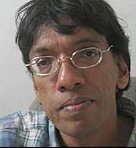Impeachment Will Not Be Solution To Country’s Problems
By Jehan Perera -November 5, 2012
 The government’s decision to impeach Chief Justice Shirani Bandaranayake on the grounds of alleged misbehavior is a controversial one. It is extraordinary in a democratic society for a chief justice to be faced with charges that are said to merit impeachment. During her long tenure on the Supreme Court Justice Bandaranayake since 1996 she has maintained a low profile. She was also the country’s first woman judge of the Supreme Court. She was appointed to the highest position in the judiciary by the present government. The timing of her impeachment has been disconcerting. The impeachment motion was presented to the Speaker of Parliament at same time the time that Sri Lanka was defending its human rights record before the United Nations in terms of the Universal Periodic Review.
The government’s decision to impeach Chief Justice Shirani Bandaranayake on the grounds of alleged misbehavior is a controversial one. It is extraordinary in a democratic society for a chief justice to be faced with charges that are said to merit impeachment. During her long tenure on the Supreme Court Justice Bandaranayake since 1996 she has maintained a low profile. She was also the country’s first woman judge of the Supreme Court. She was appointed to the highest position in the judiciary by the present government. The timing of her impeachment has been disconcerting. The impeachment motion was presented to the Speaker of Parliament at same time the time that Sri Lanka was defending its human rights record before the United Nations in terms of the Universal Periodic Review.
The international fallout has been immediate. The impeachment motion triggered a response from the United States which, last March, spearheaded a campaign in the UN Human Rights Council to get the Sri Lankan government to deal with the issue of human rights violations during the war. The US representative said that Sri Lanka must strengthen its judicial process, protect members of the judiciary from attacks and restore an independent mechanism to oversee judicial appointments. The attack on the Secretary of the Judicial Services Commission, of which the Chief Justice is the head several weeks ago was also noted in the US statement. The JSC Secretary had publicly alleged executive interference in the judiciary prior to being attacked by unidentified men who have not yet been apprehended.
The timing of the impeachment gives an indication of the issues that spurred the government to action. It coincided with the handing over of the Supreme Court’s determination on the legal cases filed before it with regard to the Divineguma bill. Several parties had filed action before the Supreme Court opposing the legislation on various grounds, including its undermining of devolution of powers to the provincial councils. The media has reported that a Supreme Court bench headed by the Chief Justice has decided that the Divineguma bill is not in conformity with the constitution. The draft law has therefore to be passed by a 2/3 majority in Parliament and also has to obtain the approval of the people at a referendum.

